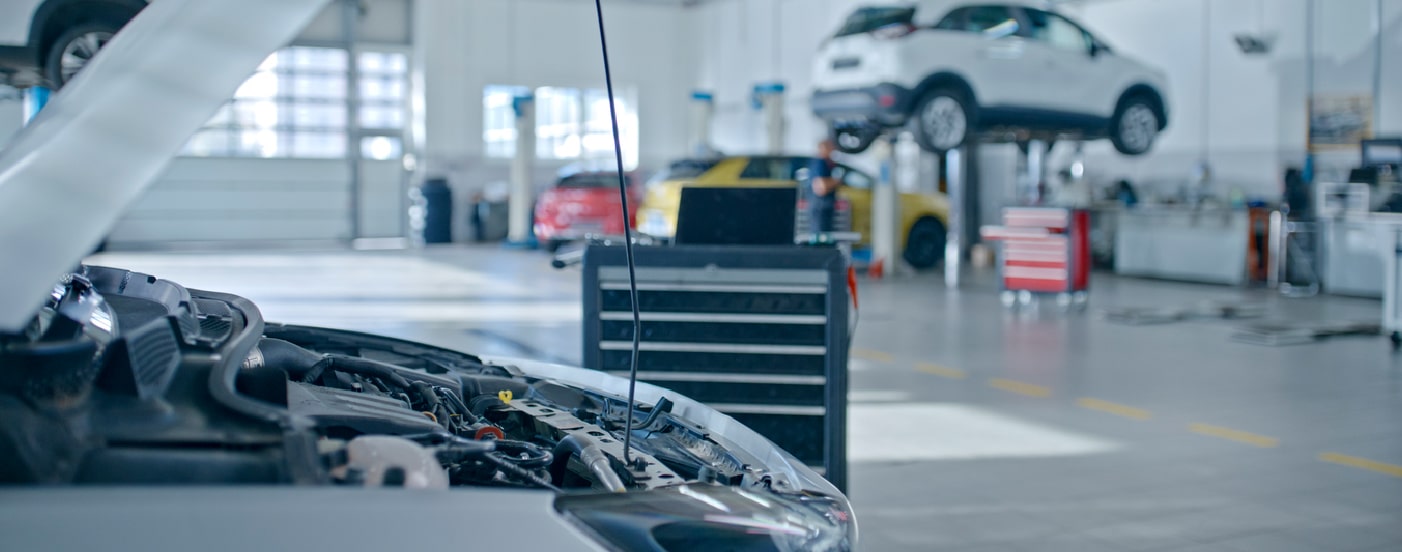Owning a car comes with its share of responsibilities, and one of the most significant concerns for vehicle owners is unexpected mechanical issues. While standard auto insurance covers damage from accidents, theft, or natural disasters, it does not cover repairs due to mechanical failures. This is where Mechanical Breakdown Insurance (MBI) comes in. In this article, we’ll explore what MBI is, how it works, and why it might be a wise investment for your vehicle.
Mechanical breakdown insurance: what it is and why it is important.
Published September 22, 2025 | ![]() 4.5 minute read
4.5 minute read

Owning a car comes with its share of responsibilities, and one of the most significant concerns for vehicle owners is unexpected mechanical issues. While standard auto insurance covers damage from accidents, theft, or natural disasters, it does not cover repairs due to mechanical failures. This is where Mechanical Breakdown Insurance (MBI) comes in. In this article, we’ll explore what MBI is, how it works, and why it might be a wise investment for your vehicle.
What is mechanical breakdown insurance?
Mechanical Breakdown Insurance, or MBI, is a type of coverage designed to protect vehicle owners from the high costs of repairing mechanical or electrical issues that occur outside of routine maintenance. Unlike extended warranties, which are often tied to the dealership or manufacturer, MBI is typically offered through insurance companies and provides more flexible coverage options.
For instance, if your car’s transmission fails or the air conditioning system breaks down, MBI can cover the repair costs after you pay your deductible. This type of insurance is particularly valuable for people who want peace of mind as their car ages or as the manufacturer’s warranty expires.
How does mechanical breakdown insurance work?
MBI operates similarly to other types of insurance. Here’s a step-by-step guide to how it typically works:
- Purchase Coverage: You can add MBI to your existing auto insurance policy or purchase it as a standalone plan. It’s generally available for newer vehicles with lower mileage.
- Pay Premiums: Like any insurance policy, you’ll pay regular premiums to maintain coverage.
- Report a Breakdown: If your vehicle experiences a covered mechanical issue, you file a claim with your MBI provider.
- Repairs and Deductible: After the claim is approved, you’ll take your car to a licensed repair shop. You’ll pay a deductible, and the insurance will cover the remaining repair costs.
What does mechanical breakdown insurance cover?
Coverage varies by provider, but MBI generally includes:
- Engine and transmission repairs
- Electrical system issues
- Cooling and heating system repairs
- Steering and suspension problems
- Brake system repairs
It’s important to review the policy details, as some providers may exclude certain parts or require specific maintenance records.
Who needs mechanical breakdown insurance?
MBI isn’t for everyone, but it can be a valuable investment in certain situations:
- Owners of New or Nearly New Vehicles: MBI is usually available for cars under a specific age and mileage limit, such as less than seven years old or under 100,000 miles.
- People Without a Manufacturer’s Warranty: If your car’s warranty has expired, MBI can fill the gap and provide continued protection.
- Drivers of High-Risk Models: Some vehicle makes and models are more prone to mechanical issues. MBI offers an extra layer of security for these cars.
- Budget-Conscious Drivers: If you’d struggle to afford a major repair bill, MBI provides peace of mind and financial stability.
It’s important to review the policy details, as some providers may exclude certain parts or require specific maintenance records.
Secure your auto loan preapproval today
Get preapproved for financing tailored to your budget, giving you peace of mind every mile.
Why is mechanical breakdown insurance important?
1. Protection Against Unexpected Costs
Car repairs can be costly, with some issues like engine or transmission failures running into thousands of dollars. MBI shields you from these unexpected expenses, ensuring you’re not left scrambling for funds.
2. Flexibility in Repair Options
Unlike extended warranties tied to specific dealerships, MBI often allows you to choose from a network of authorized repair shops. This flexibility can save you time and money.
3. Supplement to Manufacturer Warranties
Manufacturer warranties don’t last forever, and they often have limitations. MBI can extend coverage beyond the warranty period, protecting your investment as your car ages.
4. Affordable Peace of Mind
MBI premiums are generally affordable compared to the potential cost of major repairs. For a relatively low monthly cost, you can protect yourself from the financial burden of mechanical breakdowns.
5. Helps Maintain Resale Value
By addressing mechanical issues promptly, MBI helps you keep your car in good working condition, which can boost its resale or trade-in value.
How to purchase mechanical breakdown insurance
If you’re considering MBI, here’s how to get started:
- Research Providers: Many auto insurance companies offer MBI as an add-on, but you can also find standalone policies. Compare coverage options, premiums, and deductibles.
- Check Eligibility: Ensure your car meets the age and mileage requirements.
- Review the Policy: Understand what’s covered, the exclusions, and the claims process. Pay attention to maintenance requirements and whether pre-approval for repairs is needed.
- Purchase Early: MBI is typically more affordable and widely available for newer cars. Buying early can secure better rates and broader coverage.
Alternatives to mechanical breakdown insurance.
If MBI doesn’t seem right for you, consider these alternatives:
- Extended Warranty: Offered by dealerships or manufacturers, extended warranties provide similar protection but may come with less flexibility.
- Emergency Savings Fund: Setting aside money for unexpected repairs can provide financial security without the need for insurance.
- Routine Maintenance: Regular maintenance can help prevent costly repairs and extend your car’s lifespan.
In conclusion
Mechanical Breakdown Insurance is an invaluable tool for car owners who want to protect themselves from the financial strain of unexpected repairs. By covering major mechanical and electrical issues, MBI provides peace of mind and ensures your vehicle stays on the road without breaking the bank. While it’s not necessary for everyone, MBI is a smart choice for drivers of newer cars, those without warranties, or anyone who values financial stability. Take the time to evaluate your needs and consider MBI as part of your vehicle protection plan.


